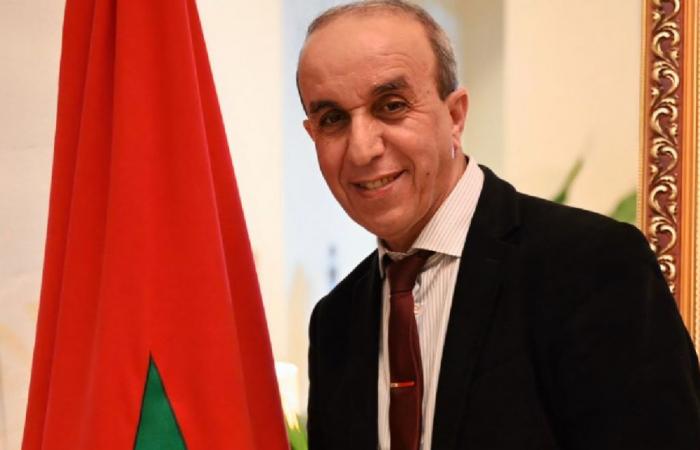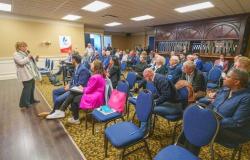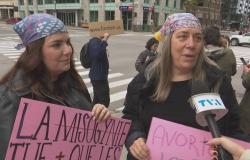Finances News Hebdo: As the 2026 legislative elections approach, the question of the right to vote of Moroccans living abroad arises acutely. What are the issues linked to this participation?
Abdelkhalek Hassini: As the 2026 legislative elections approach, the question of the voting rights of Moroccans living abroad (MRE) returns to the heart of political debates, reinforcing the importance of this diaspora, often considered the “13th region” of the Kingdom. This diaspora represents much more than just a community abroad; it symbolizes a powerful link between Morocco and the rest of the world. Ensuring the electoral participation of MREs means recognizing their essential role in the democratic future of Morocco. First, democratic legitimacy is at the center of the issues. Allowing MREs to vote is an important step towards a more open and truly representative democracy. By integrating these voices from various horizonszons, Morocco enriches its political decisions with a plurality of perspectives.
However, despite the guarantees of the 2011 Constitution, the electoral participation of MRE remains underexploited, successive governments having not yet made this promise a reality, leaving a large part of the community on the margins of the country’s major political orientations. Logistically, there are also many challenges. Organizing a vote in more than 100 countries poses considerable difficultiesrables. The absence of polling stations in many countries, combined with administrative obstacles, hampers smooth electoral participation. It is becoming urgent to rethink electoral mechanisms so that voting for MREs is not only possible, but truly accessible and fair. Finally, beyond the logistical and constitutional aspects, the political representation of MREs is of particular importance. The diaspora contributes significantly to the Moroccan economy through remittances, investments and cultural exchanges. It is therefore crucial that their voice is included in the decisions that shape the future of the country. Their active participation in the elections would strengthen their link with their native land, while underlining the key role of Morocco on the international scene. Beyond a simple question of law, the vote of MRE is a key to a truly participatory democracy. Facilitating this participation means recognizing not only their strategic contribution, but also strengthening the foundations of a democratic Morocco looking to the future. By ensuring that every voice, wherever it is, can be expressed, the Kingdom affirms its commitment to building a more just and equitable society.
FNH: By analyzing recent legislative developments and the systems put in place, what is your assessment of the voting rights of MREs?
A. H. : Since the adoption of the Moroccan Constitution in 2011, Moroccans residing abroad (MRE) have been granted, on paper, extensive political rights, including the right to vote and to stand for election, in accordance with Article 17. This constitutional reform marked a major turning point, highlighting the importance of the diaspora in the democratic life of the Kingdom. However, despite this promising legislative framework, the reality is very different: the concrete exercise of these rights remains limited, well below initial expectations. Several obstacles hinder this participation. Proxy voting, frequently put forward as a solution, is considered complex, often unsuitable, and insufficient to guarantee faithful representation of voters abroad. In addition, the absence of polling stations in many countries where large Moroccan communities live considerably limits their participation. These logistical and administrative shortcomings create a profound gap between the promises of the Constitution and their effective implementation.
Furthermore, although MREs theoretically have the right to run for office, there is no obligation for political parties to include them in their lists. This lack of representation reduces their visibility and their engagement in Moroccan political life, thus excluding millions of citizens who are nevertheless attached to their country of origin. This lack of integration makes the participation of MREs essentially theoretical. The current electoral infrastructure is also unsuitable for the scale of the diaspora. In addition to administrative barriers, the lack of resources to organize elections abroad limits the effectiveness of the process. Despite the 2011 reforms, it is becoming obvious that these rights remain largely symbolic as long as they are not supported by concrete measures to facilitate their exercise. Technological solutions such as secure electronic voting could help overcome these logistical obstacles and guarantee broader and broader participation of MREs. This approach has already proven its effectiveness in various countries, ensuring security and accessibility for citizens abroad. So that the political rights of MREs do not remain symbolic, it is essential to accompany them with concrete actions. By facilitating their participation, Morocco will ensure that its democracy fully reflects the diversity and wealth of its citizens, whether they are within the country or abroad.
FNH: The absence of polling stations in host countries and the complexity of proxy voting procedures greatly hinder the exercise of this right. How can we remedy this problem?
A. H. : Several solutions could be put in place to make electoral participation more accessible and broader. The first would be the opening of polling stations in Moroccan embassies and consulates, places frequented by the diaspora, thus offering direct access to the electoral process. In countries with a strong Moroccan community, it would be possible to consider additional offices in community centers or strategic public places, thus bringing voters closer to the polls. Furthermore, it is essential to simplify proxy voting procedures. This mechanism, despite its potential usefulness, is still too complex. The adoption of transparent and secure digital tools, via online platforms, could streamline these procedures by reducing delays and administrative obstacles, and guaranteeing Moroccans residing in areas without polling stations can participate in elections more easily. Beyond the logistical aspect, the participation of MREs in the vote has an important symbolic dimension. By facilitating their electoral engagement, Morocco would strengthen their sense of belonging to the nation and fully recognize their role in the country’s development. Giving a voice to these millions of citizens abroad would consolidate ties with their land of origin, while promoting their contribution on the international scene.
FNH: In your opinion, what are the concrete solutions to provide in order to guarantee accessible and inclusive voting rights for this active, but most often underrepresented, community?
A. H. : To ensure fully inclusive and accessible voting rights for MREs, it is essential to introduce sustainable and innovative structural reforms. Among the solutions, secure electronic voting stands out as a modern, practical alternative adapted to the diaspora, scattered across the four corners of the world. Countries like Estonia and Switzerland have demonstrated that online voting can be a reliable and effective way to encourage voter turnout abroad, while ensuring the integrity of ballots. At the same time, strengthened cooperation between Morocco and host countries is essential to facilitate electoral procedures. Increased dialogue with local authorities would make it possible to remove certain administrative obstacles, while creating favorable conditions for the exercise of the right to vote. This partnership could also include collaboration with Moroccan associations abroad, aimed at raising awareness among the diaspora of electoral issues and supporting them in their efforts. Communication and awareness are also essential.
Targeted information campaigns, via social networks, the media and MRE associations, would remind the diaspora of their rights and the different methods of participation. By establishing interactive platforms, Moroccan authorities could strengthen their ties with the diaspora and collect feedback, thus optimizing electoral processes. In addition, continuous evaluation of existing systems is crucial. Regular monitoring of the performance of electoral infrastructures, combined with listening to voters’ concerns, would make it possible to adjust the measures at each deadline, guaranteeing broader and representative participation. To conclude, modernizing electoral processes, strengthening international cooperation and increasing awareness are the keys to offering MREs a fair right to vote. These actions are not limited to a simple civic gesture, but reflect recognition of the fundamental role that the diaspora plays in the economy, culture and politics of the Kingdom. By allowing them to actively participate in major decisions, Morocco strengthens its democracy, making it more inclusive and truly representative of its diversity.






